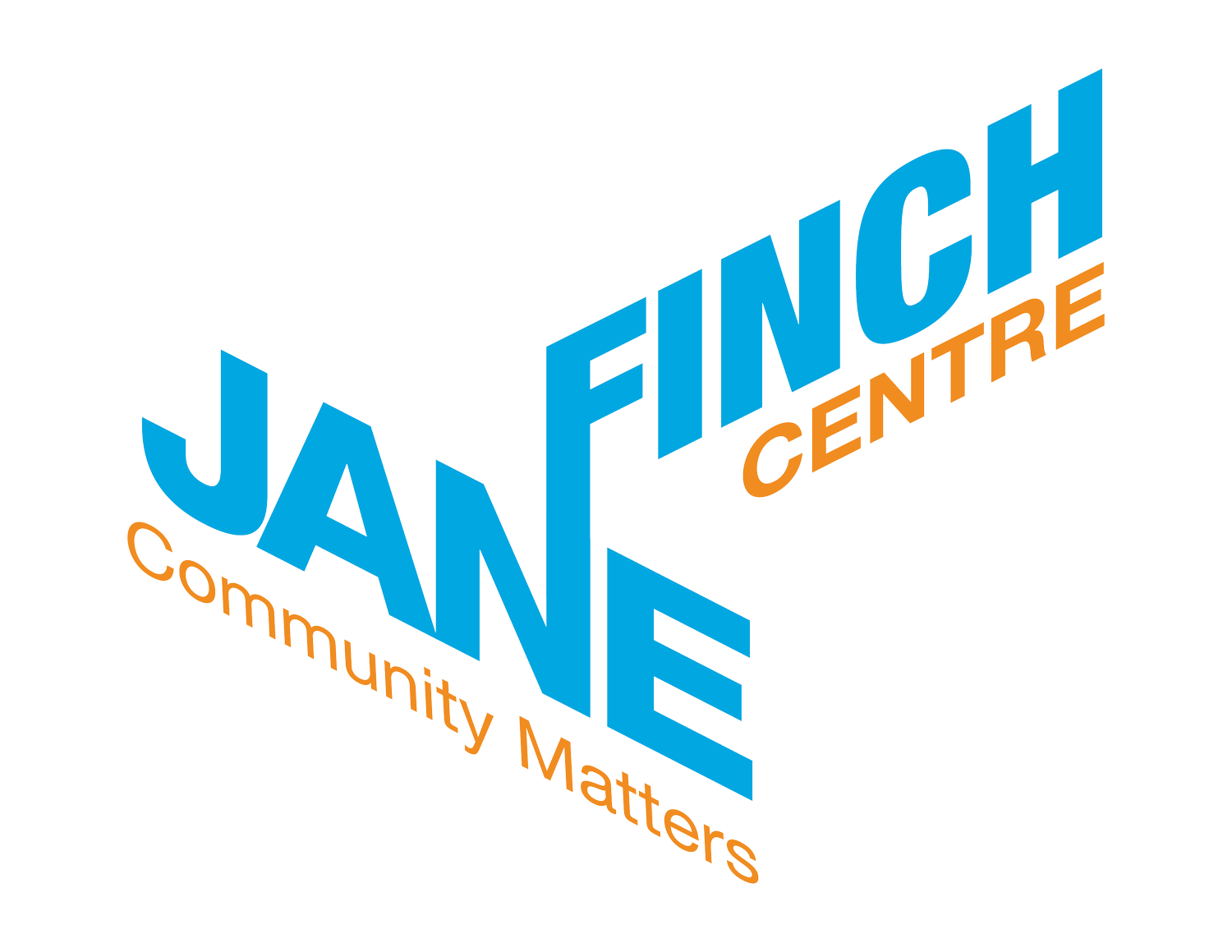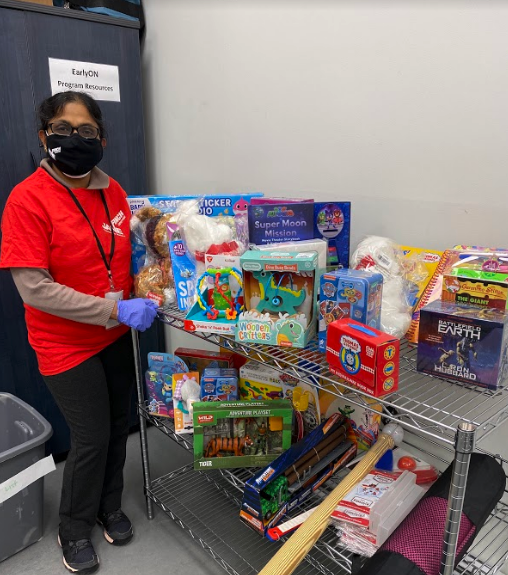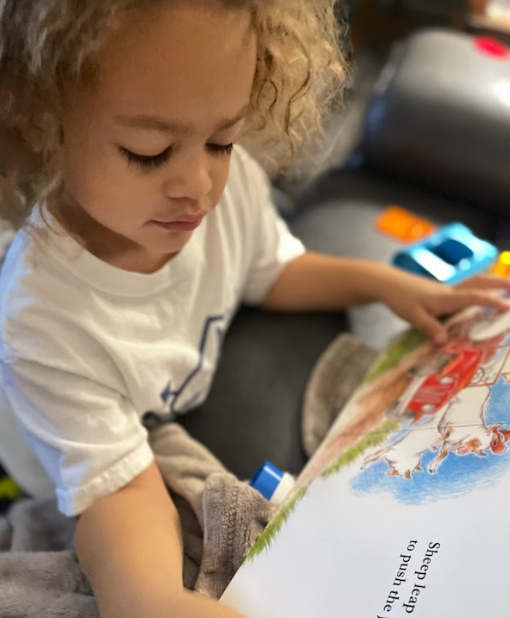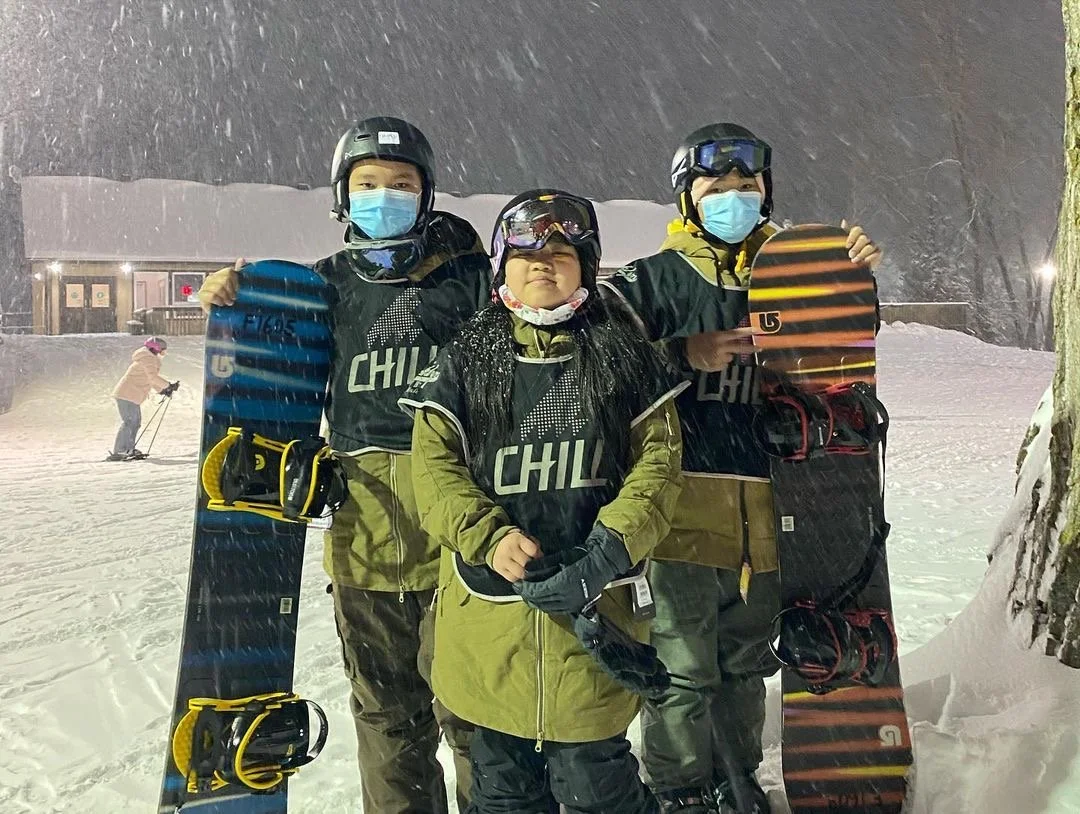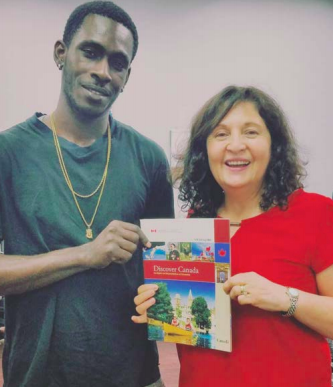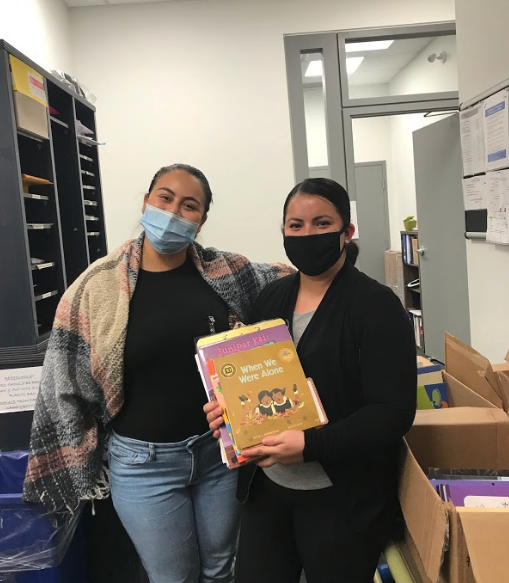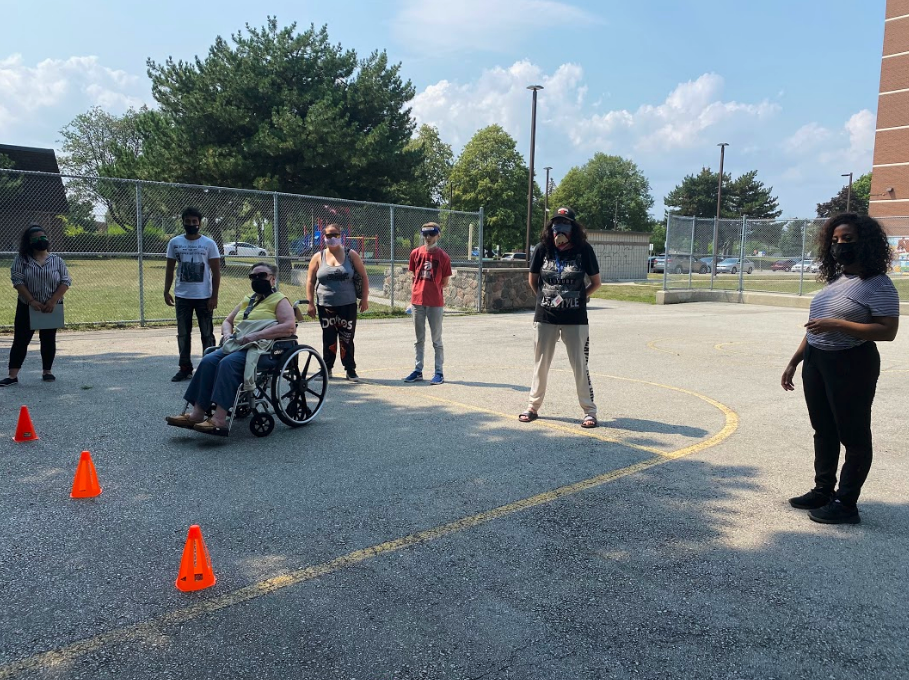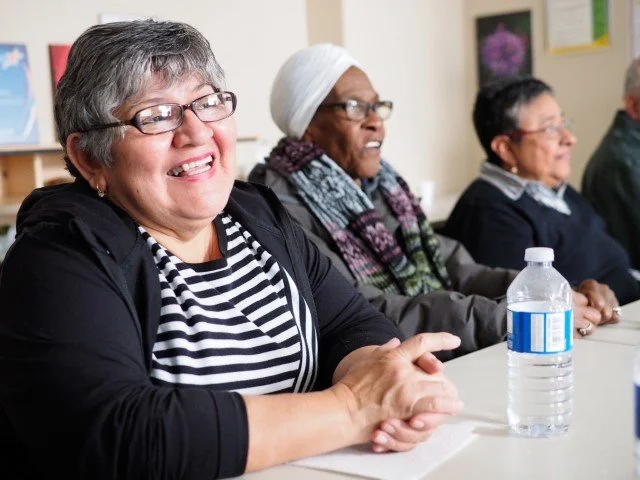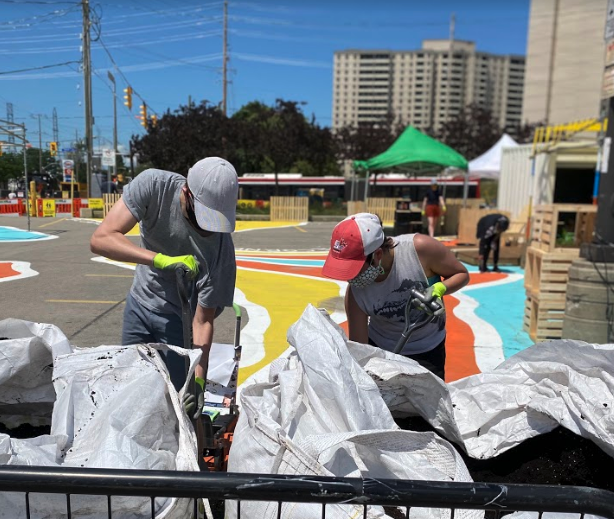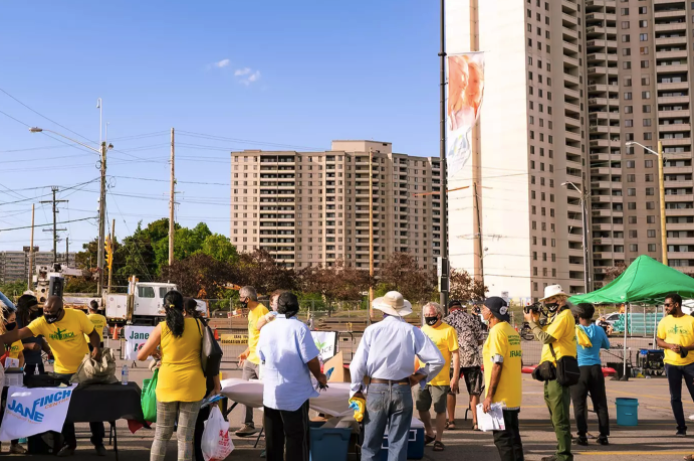Jane/Finch Centre Program Updates
Community Resource centre (crc)
The Community Resource Centre (CRC) continues to be the first point of contact for most of the clients who access the services at the Jane/Finch Centre. In addition to information, referrals and administrative services, the CRC staff also provide an individualized and coordinated approach for clients who come to us with complex needs.
For much of the pandemic, the CRC staff operated virtually while maintaining a limited onsite presence. Our continuing challenge was to ensure that we sustained a high level of client service while operating virtually. To this end, we utilized a variety of virtual resources to ensure that our clients were able to maintain contact. We also engaged in tutorial sessions with individuals who needed help using electronic devices as well as obtained laptops and tablets for clients in need. In January 2022, we began the transition back to in-person services.
Over the course of the year, we interacted with an increasing number of clients, particularly seniors, who needed access to affordable housing, required support to access government benefits or faced issues with their landlord. One such senior, Dolores*, came to the Jane/Finch Centre in February 2022 with a variety of concerns. She was facing a rent increase, maintenance issues with her apartment as well as pension and tax issues. Our CRC staff worked with her over several months to help her resolve her situation. The process involved internal and external referrals and advocacy with the landlord and government agencies. In the end, the decision to increase her rent was reversed, her pension and tax issues were resolved through the work of our Financial Empowerment and Problem-Solving (FEPS)Team, and the majority of her maintenance issues were taken care of.
With the increasingly difficult economic times, clients who are already vulnerable, and often isolated, are facing complex and precarious situations. The CRC will continue to operate from a holistic perspective, utilizing the resources at our disposal to provide and connect services that are client-centred and solutions focused.
*Pseudonym used to protect privacy of client
This year, the EarlyON programs experienced several changes, as the COVID-19 situation evolved. Our staff worked diligently to adapt to the ongoing changes of Toronto Public Health, while adhering to the policies of Toronto Children's Services, offering a combination of in-person, online and outdoor programming.
The team was met with various challenges, including staffing shortages due to COVID, external partnerships being hindered and physical programming spaces being closed.
Despite this, the EarlyON Centre was able to support over 4,000 individuals during the 2021-22 year. The team found sustainable online solutions to ensure families in the community were given the support they needed. The team partnered with the Toronto Public Library to provide online infant programming, and worked alongside Sick Kids Hospital to provide informative digital workshops for parents.
As the year went on, many of the physical spaces began to reopen, including the satellite space at 15 Tobermory, a partnership with Toronto Community Housing, which had been closed since March 2020.
The team is looking forward to the 2022-23 year, where they hope to bring back their congregate setting programs, where they serve warm meals to families in the community. They hope to continue both their in-person and digital programming, to ensure they are able to reach the most families possible.
Earlyon centre
This year, the complex challenges of front-line youth work in Jane-Finch continued to be exacerbated by COVID-19 and other factors. As a historically marginalized - yet vibrant and connected community - youth in Jane-Finch continue to disproportionately struggle with structural inequity. In the 2021-22 year, we saw increases in youth unemployment and underemployment, poverty, (mental) health challenges and food precarity. The Learning Opportunities Index (LOI) continues to show that youth in Jane-Finch also disproportionately struggle with issues in the educational system. In the City of Toronto, Jane-Finch has 6 of the 10 schools most impacted by external factors which impair learning outcomes.
This past year, youth program staff also reported that community safety (community violence and over-surveillance) remain important issues for youth. Youth program staff also shared concerns that short-term models of project funding impair creative planning, the delivery-potential of youth programming and the long-term benefit of such programs.
Outreach and youth engagement were also impacted by COVID-19. The sudden fluctuations between virtual and in-person programs impacted regular youth participation. Youth who had been digitally distracted and socially isolated during the pandemic reported feeling less engaged when the venue and format of programming changed suddenly. The pandemic has also made finding and accessing outdoor and indoor spaces for our parks and recreation as well as sports and athletics particularly challenging over the past year.
Despite these challenges, youth staff have worked to address as many of the above challenges as possible – while observing public health policy as it changed over the course of the pandemic.
In the 2021-22 year, our youth team supported over 380 community youth with one-on-one case work, group programming and resource distribution that had successfully connected them with training programs, full and part-time jobs (over 80 jobs this fiscal year), food gift cards (200+), laptops, free home wifi-access and tablets. The youth team was able to develop partnerships with the City of Toronto and corporate sponsors as well as other agencies doing adjacent work in Toronto to connect youth to resources that have become more (acutely) needed over the past year.
Our YOW (Youth Outreach Worker) supported two youth (who were long-time participants of The Spot) in entering construction programs, which have since yielded full-time employment. Carlos, one of the youth program participants, was selected to participate in the Chill Explore program: an overnight opportunity to build leadership skills, advance board sport experience and explore unique career opportunities.
For the 2022-23 year, the youth team will focus on securing additional funding to dramatically expand youth programming, particularly around sports and cooking programs. With restrictions being formally lifted, our team is focused on increasing youth outreach initiatives, to make The Spot youth space a bustling site of youth engagement, while bolstering drop-in and program specific activities.
YOUTH PROGRAM
The challenges faced by newcomers and frontline settlement workers continue to be exacerbated by COVID-19 and other structural factors. This year, the settlement team saw a sharp increase in issues related to food precarity, unemployment, high rent costs, access to housing and mental health concerns related to economic factors, social isolation and its intersections with race and gender. Because of this, community needs continued to outpace our capacity.
By the end of the 2021-22 fiscal year, the demand for food bank support reached some of the highest recorded rates ever. At JFC, the demand for food support had outstripped our food bank capacities. With limited resources, we were able to serve about 8-12 families per month, with a recurring waitlist of 175 families. About 40 percent of these families were newcomers.
In addition, staff have reported an increase in issues related to acute forms of poverty, the threat of homelessness as well as domestic/partner violence and digital addiction (gaming and gambling). They have also reported an increase in assisting refugees seeking asylum due to war or natural disasters.
The complexity and consistency of the above have required staff to deepen and expand partnerships with other agencies to adapt to fluctuating methods of service delivery (hybrid and purely virtual) while acquainting themselves with automated/online-only application portals. In collaboration with other agencies and service providers, the team was able to offer webinars, online workshops and activities that addressed the specific needs of COVID-related isolation, domestic violence, PTSD, legal support and more. In addition, the team organized various holiday events, community giveaways, online yoga classes and art therapy workshops.
Despite the challenges of varying Public Health guidelines, the settlement team was able to continue providing exceptional services to clients and stakeholders, while successfully adapting to offering hybrid services (providing services in-person, over the phone, Zoom, Whatsapp, email and webinars).
For the 2022-23 year, the settlement team hopes to expand internal knowledge about available resources during such difficult times. We also hope to procure funding to expand our food programs, while formalizing regular pathways for newcomer clients needing mental health support.
Settlement PROGRAM
The FEPS team had a busy year supporting approximately 2,000 individuals in Northwest Toronto.
Despite their strong presence and relevance in the community, the Jane/Finch Centre spent the early portion of 2022 working to secure funding for the 2022-23 fiscal year. In March 2022, funding was received through our partnership with Prosper Canada.
The FEPS tax clinic in early 2022 was a huge success, despite having faced staff shortages, matched with an increased need for FEPS services from residents. Adapting to the ever-changing COVID-19 situation, the team balanced both in-person and online appointments, based on Public Health guidelines.
The team supported many residents who were concerned about the loss of their benefits, or about not having filed in the 2020-21 year due to the pandemic. With the lifting of restrictions and the increase in vaccine equity and accessibility, many seniors in the community were able to meet with our staff in-person, which helped decrease the risk of seniors being subjected to CRA scams.
FEPS (Financial Empowerment and Problem Solving)
Community wellbeing program
This year, the community wellbeing program (previously known as the community mental health program) went through transformational changes as a response to the disproportionate prevalence of negative health and mental health outcomes among Jane-Finch residents when compared to the rest of the city, before and during the pandemic.
Similarly to other programs at the Jane/Finch Centre, participants in the community wellbeing program faced challenges engaging and participating in virtual programming and services. The team was forced to pivot towards using creative and resourceful ways of staying connected to their clients. Throughout the year, the team worked tirelessly to provide daily telephone reassurance calls, wellness check-ins, virtual and phone health and social service referrals, prevention education and COVID-19 news updates to their clients.
As a component of the program's refocus, the community wellbeing team began to operate using a social determinants of health approach, informed by mental health principles. Through this, our team of trained staff spent the year working with residents of various age groups (categorized by youth, adults and seniors) through the delivery of individual and group-based programs.
Throughout the year, group programming for youth, adults and seniors included workshops and other sessions aimed at engaging and supporting the health, social and mental wellbeing of residents in the community. The GIT (Getting In Touch) program offered regular weekly programming for adults ages 30-55. These sessions ranged from high quality health promotion to social/recreational sessions with a primary focus on social connectedness, health and access to education.
To further support the unique, individual needs of our participants, we launched the Service Navigation Program in April 2021, which offers rapid case management support to residents of Northwest Toronto, providing them with access to both clinical and social supports (ex: food security programs, financial empowerment, housing supports), all of which impact one’s mental health and wellbeing.
For the 2022-23 year, the community wellbeing team hopes to strengthen existing relationships with community service providers integral to individual’s wellbeing in the community, seek and develop new partnerships with organizations to increase access to social supports, and to support residents as they navigate living and working in this new era of the COVID-19 pandemic.
SENIORS program
With stay-at-home orders still in effect throughout the 2021-22 year, our senior participants were no longer able to connect in ways they were used to. Access to technology and lack of digital literacy created challenges and barriers for many seniors residents in the community.
This year, the Jane/Finch Centre was able to support 2,922 senior residents in Northwest Toronto. Understanding the factors that place older adults at risk for loneliness and social isolation, the seniors team and the ‘Unity in Diversity: Aging at Home’ program team supported seniors with one-to-one computer literacy training, virtual exercise and social activities and weekly Zoom workshops for 10 ethno-cultural seniors groups. In addition, participants were provided with access to food hamper and hot meal deliveries, support with medical appointments and medication deliveries, filing of income taxes and getting access to information and appointments for the COVID-19 vaccine.
The seniors team also assisted older clients through individual service navigation support. Through this, clients were individually engaged and connected to much needed social and mental health supports, with the overall goal of decreasing negative mental health outcomes, hospitalizations and re-hospitalizations, while improving access to mental health and social services among residents.
As we continue to grow the seniors program into the 2022-23 year, our vision includes creating a healthy Jane-Finch, where residents can continue to be meaningfully connected within and to their communities.
Green CHange
After its installation was delayed in 2020 due to COVID, the Green Change team worked alongisde local volunteers, resident leaders and partners to build Corner Commons, transforming the parking lot at the Jane Finch Mall into a safe, vibrant and welcoming public space for the Jane-Finch community. From June to September of 2021, it became a venue for many community events and programs, including an artist residencies program, small business market, child and youth workshops, back-to-school events and grassroots outreach.
Throughout the summer, Corner Commons hosted 20 events and reached over 4,500 people through online engagement. The annual artist residency program employed 28 Jane-Finch artists and youth, and brought 1,200 visitors to the public art installations and events.
Our team of volunteers contributed roughly 345 hours to building and maintaining Corner Commons. Our collective efforts were publicly recognized when Corner Commons won the National Urban Design Award in the category of Community Initiatives.
In May 2021, the Toronto City Council unanimously approved the land transfer from Metrolinx and the Province of Ontario for the development of the future Jane-Finch Community Hub and Centre for the Arts. This was only made possible through the support, passion, dedication and hard work of Jane-Finch residents, Hub Organizing Committee members and supporters. Following that historic Toronto City Council decision,the Green Change team continued to support and work with other Hub Organizing Committee members on building a partnership with the City of Toronto, and creating an implementation strategy for the pre-development of the future Jane-Finch Community Hub and Centre for the Arts.
Thanks to financial support from Canadian Heritage’s Anti-Racism Action Program, we launched a new project in collaboration with The Spot, focused on creating new outdoor programming to help improve access to green spaces within and outside the neighbourhood with Black, racialized and newcomer residents. In 2021, we also collaborated with over 20 residents from Jane-Finch and St. James Town, community organizations and York University scholars on a community-engaged photo/voice research project that explored the nuanced experiences of racialized people in their local green spaces.
In collaboration with Jane-Finch community residents, the Green Change team aims to develop a longer-term vision for Corner Commons beyond the 2022 season. We hope to continue to deliver and expand our inclusive park programming through partnerships with Black Creek Walks, Department of Imaginary Affairs and others. In addition, we will spend this year supporting a governance research project, an updated feasibility study as well as community engagement, leadership and accountability with the Hub Organizing Committee.
Community Development
This year, the community development team provided support to various community groups including the Jane Finch Action Against Poverty, Jane Finch Political Conversation Cafés, Jane Finch Education Action Group, Jane Finch Housing Coalition and Jane Finch Community Research Partnership with their grassroots outreach, organizing, fundraising and advocacy around various community issues facing low-income, working class and racialized residents. Our joint community outreach activities and campaigns focused on a wide range of issues including workers’ rights, public transit issues, the impact of COVID on schools, white supremacy and racism, defunding the police and affordable housing.
Through our Black Creek Fair Economies (BCFE) project, we produced the Jane-Finch Community Benefits Framework: a set of shared principles, demands and strategies created with and for the existing Jane-Finch community to influence new developments and investments, reduce displacement and improve economic opportunities for current low-income, racialized residents. We remained a core partner with two local youth collective impact projects, the Jane-Finch Bridging Education to Employment (JFBEE) and the Jane-Finch Employment Collective, as they moved through their respective coaching and funding phases with the Laidlaw Foundation. These collaborative projects advanced significantly over the last year to support increased youth leadership and employment/wraparound service coordination in the neighbourhood, with the JFBEE securing an execution grant of over $200,000.
A significant challenge the team faced was the high volume of new development applications and large-scale planning processes that were initiated over the past year in the neighbourhood and surrounding communities. It was difficult to stay up to speed on their status, participate in multiple simultaneous consultation processes and mobilize residents and partners around each project. We also struggled with increasing our community outreach efforts and broader community engagement, alongside sustaining existing community leadership.
Despite this, we were still able to connect directly with over 130 people, while reaching over 2,000 people online through our Jane-Finch Community Benefits Framework events, working sessions and interviews. We were also able to reach 2,600 people through our community events, workshops and other activities with local grassroots groups, including through the 2021 Federal Election Town Hall, Jane Finch Education Town Hall, Political Conversation Cafes and the Enough is Enough Campaign.
This year, the community development team hopes to continue to track local developments and mobilize residents and partners around affordable housing issues, community benefits and anti-displacement strategies. In addition to the continuation of other ongoing projects and campaigns in collaboration with residents and community groups, we will prioritize focusing on securing long-term local hiring opportunities for Jane-Finch residents through the new Finch West LRT Maintenance and Storage Facility, Humber Meadows Long-Term Care Home and York University.
